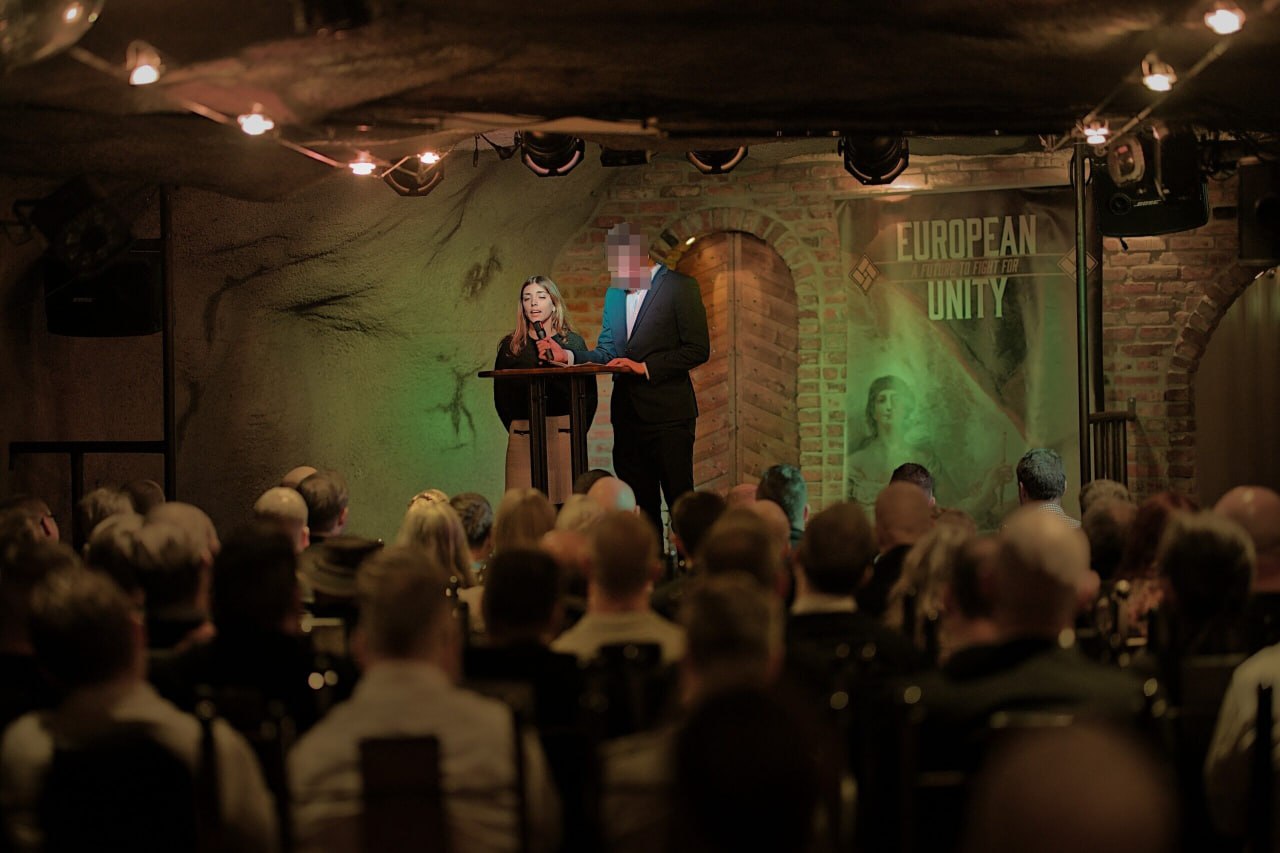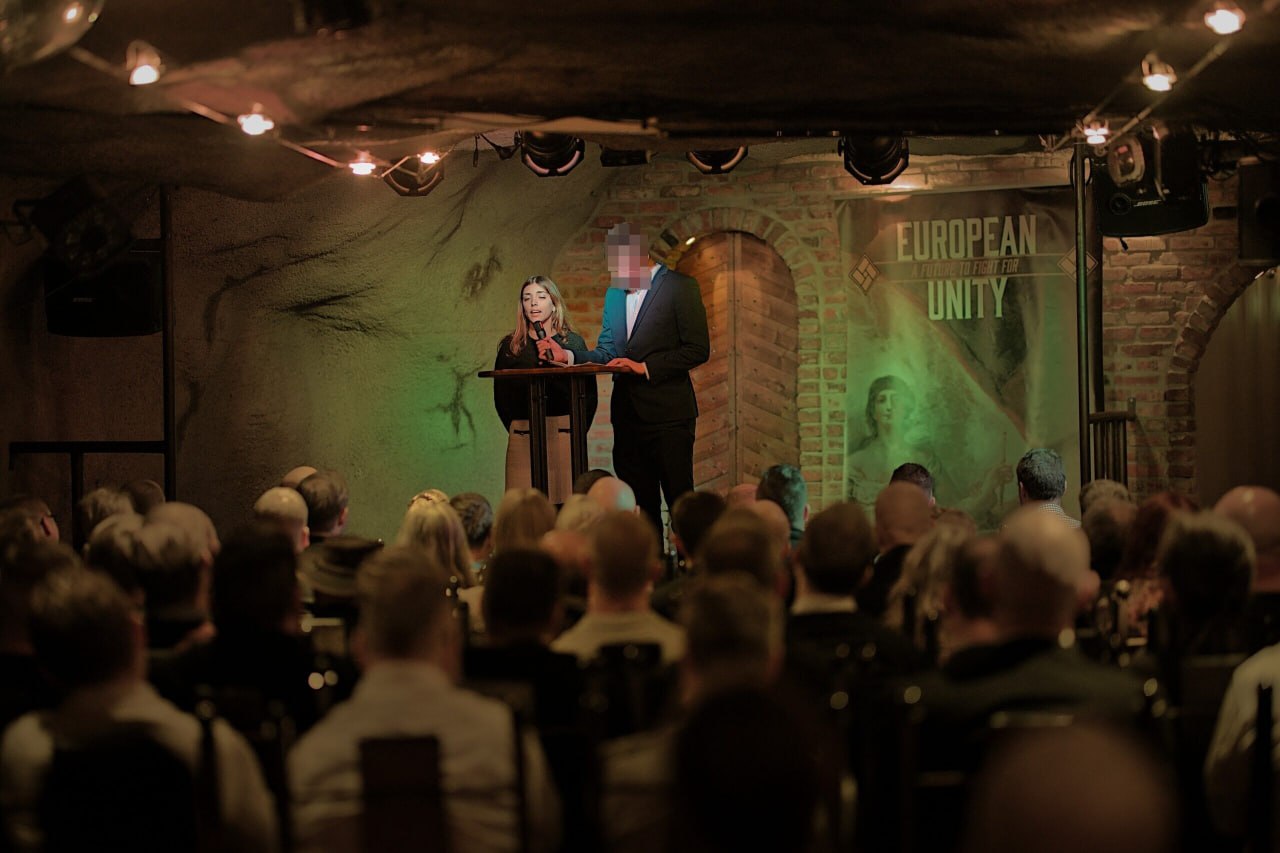Ecofaxism is a disease that recovers fascism and analyzes ecology with a fascist approach
- The book Écofascismes (“Ecofeminisms”) has recently been published, in which we have realised the risks involved in this ideology. The anti-fascist and ecologist Antoine Dubiau, the author of the book, identifies the “fascialization of ecology” and the “greening of fascism”: ecofeminism unites two mutually nourishing objectives. We have an obligation to warn that the climate emergency is getting worse, that ecology is a left-led struggle and that social justice is an objective. Because the extreme right is increasingly the discourse that is being directed from green and green.

At a time when the climate emergency is becoming inevitable and when hope, or rather despair, is increasingly placed in the middle of the socio-economic crisis on the far right, it is essential to look more closely at ecofeminism. In the name of environmental protection and in order to emerge from the climate crisis, ecofeminism consists of adding together the set of authoritarian, nationalist and xenophobic ideas that fascism and ecological sensitivity bring.
Antoine Dubiau, a social science researcher, has just taken out the book Écofascismes [ecofeminisms] and says that it is an ideology, which at the moment is not structured as a movement. But, for example, if the ecological crisis hardens, there is a risk of structuring itself – and better imagining the worst – to meet the need to cut the path that is not too developed. The fascist mentality is based on a few who live in communities and outside society, but in general and for the moment those who are at the far right are in the logic of the consumer society. However, it should not be forgotten that in 2019 the murder occurred in the mosque of Christchurch in New Zealand, as the murderer defined himself as an ecofeminist. In the previous public reading, one could read: “The climate emergency and immigration are two sides of the same problem.” The homicide in the city of El Paso, in Texas, in the United States, also opened an eco-feminist explanation.
Dubiau observes two branches of ecofeminism: “Fascialization of ecology” and “Greening fascism”. “The ambiguity of some environmental concepts is the consequence of the fascialization of ecology, as some interpretations feed the possibility of the right end joining with ecology. From an ideological point of view, the ecology of fascism is that the extreme right takes on the ecological problem.” Following what it defines, the ecology of fascism is a branch of this authoritarian xenophobic ideology that can fight against anti-faxism. “Ecofeminism’s mission is to secure and protect the remaining habitable lands, as well as to fight against immigrants fleeing unbearable regions,” says political scientist and professor Jérôme Jadin. The same reading is made by the philosopher Dominique Bourg: “They have been fantasizing about decay for decades. Climate change only confirms the imaginary. It feeds them their beliefs in the Revelation by exaggerating the fears of the invasion and disappearance of the [white].”
Dubiau considers it essential to explain some notions and ideas to avoid the fascialization of ecology. Let us suppose that of dispensing – knowing that the capitalist system needs growth to be perpetuated, a vision of turning this logic around and staining consumption and production – or that of collapse – this reading says that we have the inevitable end of industrial civilisation and that there is disaster. Fascist readings based on these two notions have multiplied in recent years: “There are natural attractions for local organization and the slowdown in ‘traditional’ ecologists, to which one can associate conceptions of the world impossible to imagine for the left,” says Dubiau. That is, ecology is instrumentalizing the tip of the right to form a xenophobic discourse. How? “The ecosystem of the nation is the first to protect within the ecosystem,” following what can be read in a presentation of the book Fascisme fossile (“fosil-fascism”). The various followers of survivalism have an eco-physialist vision.
Basically, the same is happening with the political reading that the far right can take to the left in the context of socioeconomic crisis. The last clearer example is that Marine Le Pen wanted to take the words of Jean-Luc Melencesta in the French presidential elections and conquer the voters.
Old ideas in the new context
In Reporter Du XIXe siècle à Zemmour, l’écofascisme contaminates le débat politique [“XIX. From the 20th century to the Zemmour, ecofeminism contaminates political debate”] is of interest to understand the origins of ecofeminism in which the climate emergency can benefit.
First, it is not a current of recent years and its roots date back to the 19th century, but, in the minds of economist Thomas Malthus, he recommended, among other things, the control of births, especially among workers, and the end of aid to those in need to “prevent the early disappearance of the human species”. Also in the Volkisch movement are the roots of eco-faxism, according to historian Paul Guilmentario. It was a German movement that combined the environment with xenophobic nationalism, where Nazism also has some roots. “From 1815 onwards they opposed the short-term exploitation of forests and soils, while praising the racial purity of the Teutonic people, who believed it was invaded by Jews and Slavs. Love of Earth was related to the anti-Semitism and mysticism of nature with ethnocentric populism”, can be read in the article. Volkisch was also present in the movement by scientist Ernst Haeckel, who proposed the term “ecology”. At that time, criticism of industrialization, the capitalist system and urbanization interiorized ecofeminist approaches, as these logics implied the deterioration of nature. “The roots of fascism are deeply rooted in the environmental thinking of the nineteenth century,” according to Guildil. Also within Nazism was the “green branch”, which would involve a number of environmental changes. Historically linked to the idea of the roots of ecology, they opted for the slogan of Blut und Boden (“blood and soil”) “aimed at defining a homogeneous racial community in a territory limited by natural borders”.
The end of Nazism did not end this eco-feminist mindset, and has continued to evolve over time. The goal is to deny the relationship between the left and ecology and destroy the hegemony of the left in this field. For example, Non!, published in 1995 by the Nazi Henry Coston. L´écologie n´est pas de gauche (“Ez! Ecology is not left-wing”). In Reporter’s article you can find a long and chilling list of right-wing extremists leading to the fight for the environment.
“Ecologists have a great job of ideological clarification if they want to avoid the recovery of their struggles by some far-right groups – says Dubiau in the blog Perspectives printanières – is a threat that must be taken very seriously. The current way of talking about ecology, nature or demography can be combined with a fascist perspective. We have to avoid any attempted capture.”
If the left is not in the plaza as a proponent exit, it is known that in times of socioeconomic crisis the tip of the right is reinforced. The climate crisis has only just begun and at the moment is sweet and stimulating. The exercise we have to do is the one recommended by Dubiau: to make it clear that environmentalism is built on the left. In this crisis that is going to be violated, ideas and solutions must be built on the left. Because the extreme right will be there to ignite those affected by the climate and the system. And because the crisis is not going to live the same, in the atmosphere of the tip of the right or in the spirit of social justice on which the left is based.
Martxoak 8an egindako pintaketak gainetik margotu dituzte ikur faxistekin Zuberoako hiriburuan. Horren aurrean elkarretaratzera deitu dute, astelehenean.
Martxoaren 8a Getxo bere bizitokian igaro du: kumbia dekolonial eta antiarrazista topaketa antolatu du Algortako Herriko Tabernan, Abianen, Hija del Nopal DJrekin batera.
Argentinatik Getxora migratu zen Celeste Agüero, kantutegi herrikoi batekin eta poesia xuxurlatzeko... [+]
Leporaturikoa ez onarturik, eta sare sozialetako kontuak "lapurtu" zizkiotela erranik, salaketa jarri zuen Arabako campuseko Farmazia Fakultateko irakasleak. Gernikako auzitegiak ondorioztatu du ez dagoela modurik frogatzeko mezu horiek berak idatzitakoak diren ala ez.
Martxoak 8a heltzear da beste urtebetez, eta nahiz eta zenbaitek erabiltzen duten urtean behin beren irudia morez margotzeko soilik, feministek kaleak aldarriz betetzeko baliatzen dute egun seinalatu hau. 2020an, duela bost urte, milaka emakumek elkarrekin oihukatu zuten euren... [+]
The eco-social crisis generated by capitalism is causing global unrest across the planet. The "summits" of material and energy resources, establishing limits for growth and accumulation, entail imbalances between nature and society. The crazy wheels of extractivism, climate change... [+]

























